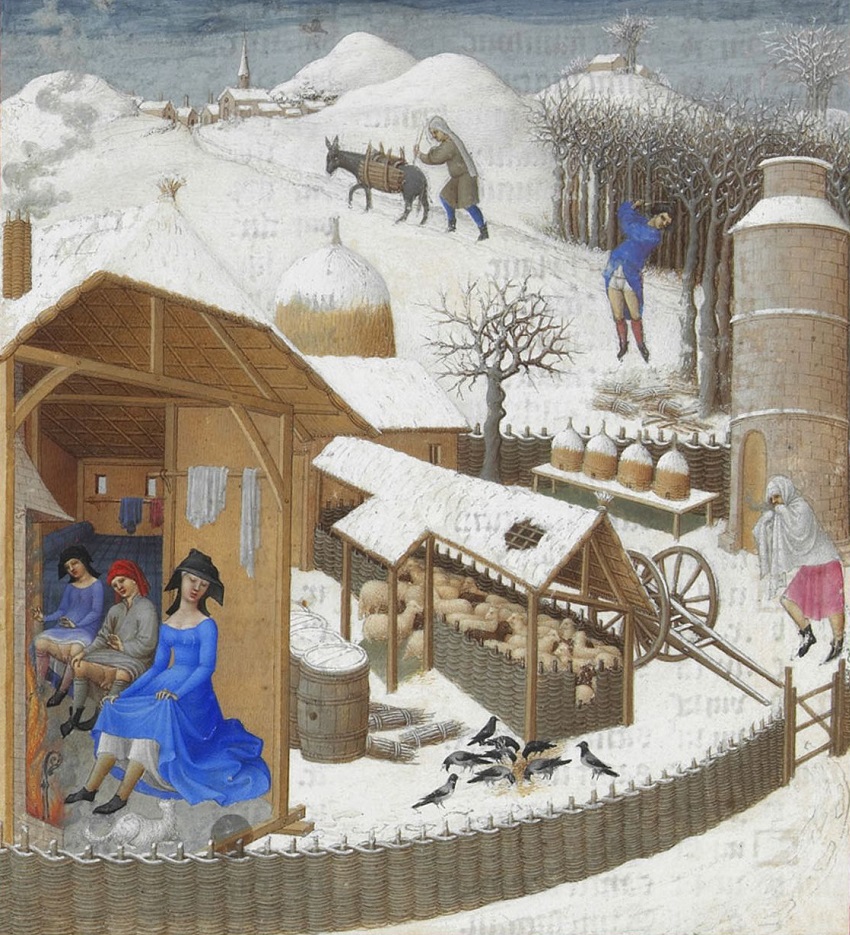
A Desirable Residence

Introduction
Very little work could be done in winter. The picture below shows French peasants at home in February. The painting is one of the pictures in a prayer book which belonged to a French lord, the Duc de Berry. The book is called Les Très Riches Heures (1416).
Study these Sources, then answer the question sheet by clicking on the 'Time to Work' icon at the top of the page.
Links:
The following websites will help you research further:
Peasants' Homes:
Simple description
The History Learning Site
A Medieval building-boom - interesting but difficult article.
A
Villein's Home: This cheat-sheet
suggests some of the things you ought to have noticed in Source 1; do not look at
this until you have completed Task One!
1 Les Très Riches Heures February
This painting from Les Très Riches Heures is more than two centuries after the Boldon Book survey of Middridge, but roughly about the same time as Pierce the Ploughman's Crede. It is a picture of French, not English, peasants.
It is a romanticised picture of peasant life, painted to enchant a lord at his prayers, and may not be an accurate depiction of an actual farmhouse.

2 A different depiction of a Villein's Home
This extract is from a book, written in c.1377 by William Langland, called The Vision Concerning Piers the Ploughman another alliterative poem in the 14th century tradition attacking the Church and the government. Like Pierce the Ploughman's Crede, this passage is an intentional picture of peasant misery, written to criticise the rich and encourage charity.
Three things there be that cause a man by force
To flee his own house as holy writ shows us.
One is a wicked wife who will not be chastened;
Her fellow flees from her for fear of her tongue.
And if his house is leaking and rain drips on his bed,
He searches and searches until he sleeps dry.
And when smoke and smoulder sting his eyes,
Till he be blear-eyed or blind and hoarse in the throat,
And he coughs and curses may Christ give them sorrow
Who should bring in better wood or blow it till it burns.